




































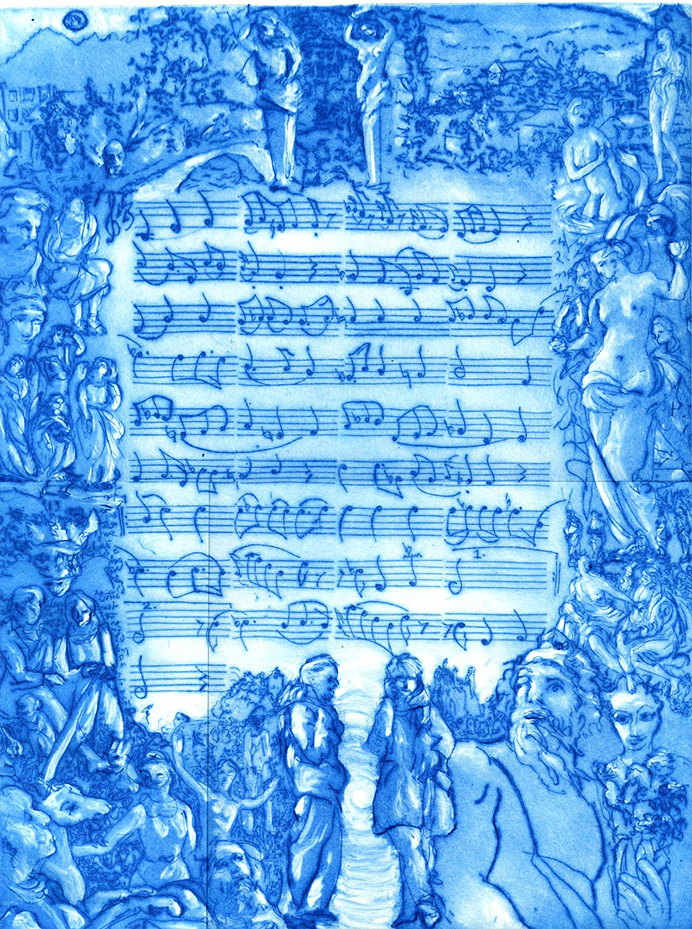















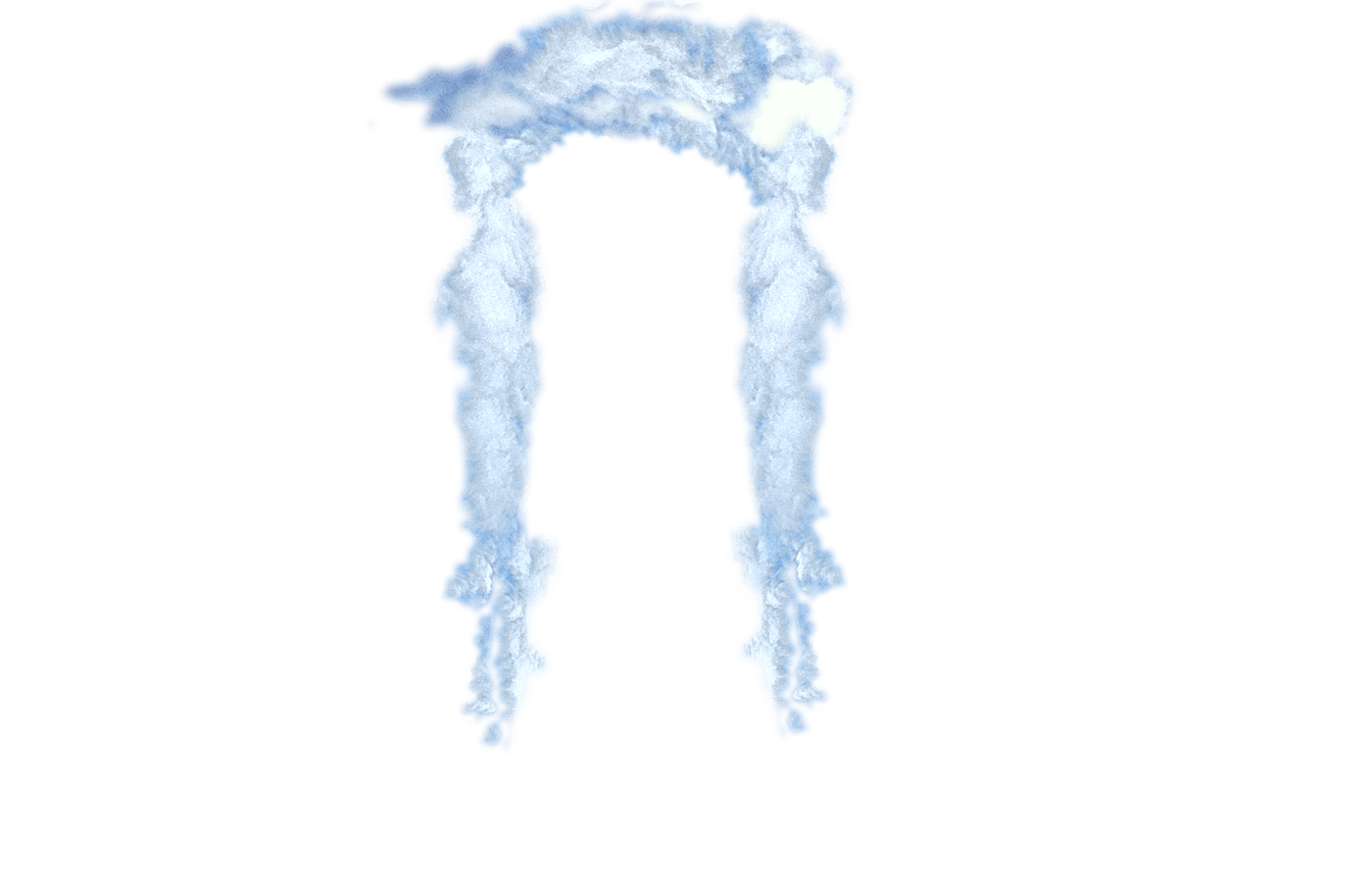
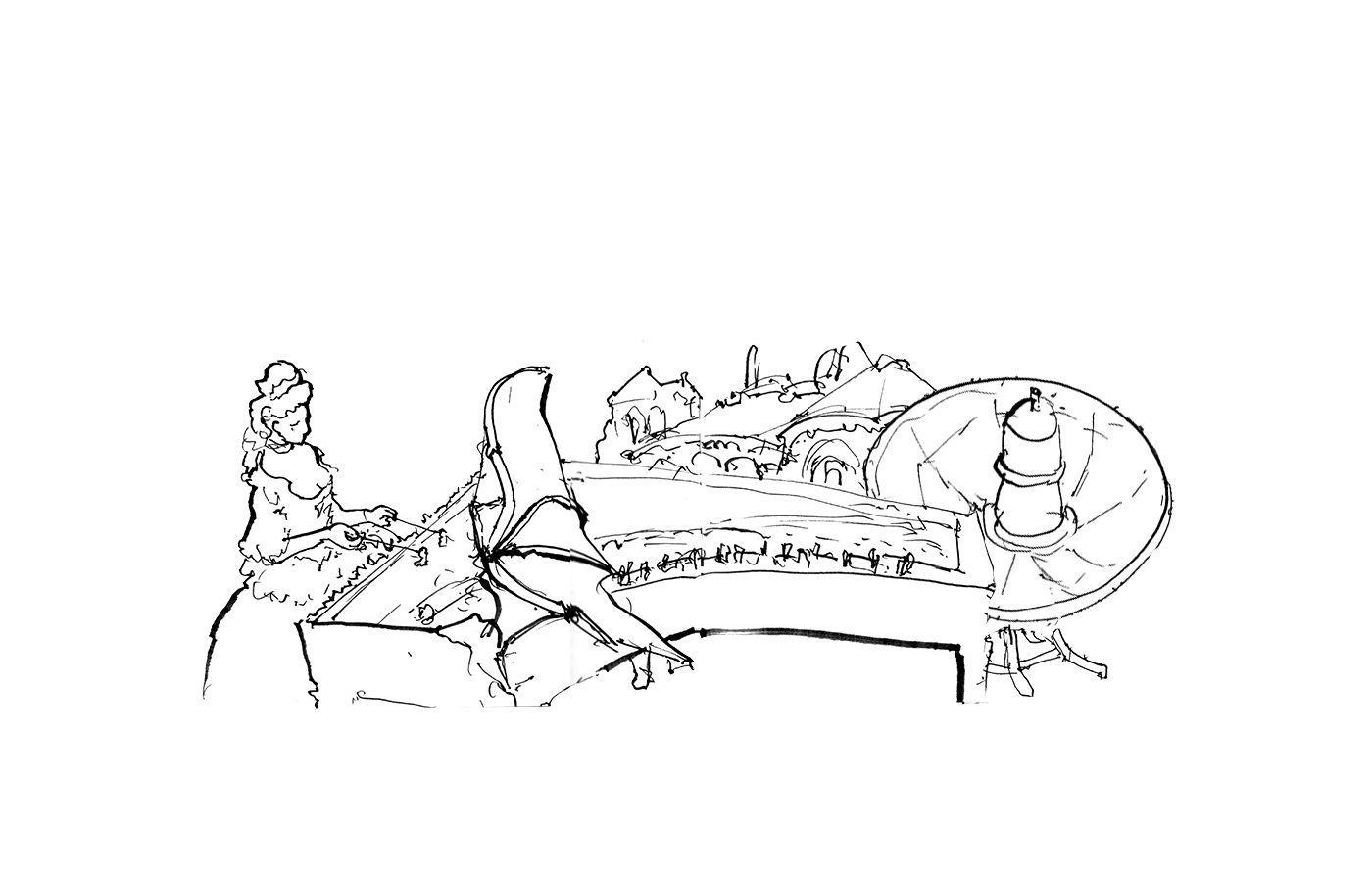

Wisdom is the sum of our Beauty.
People come together, enjoying the Beauty each has found, we marvel.
Each person's Beauty transmits individual knowledge.
"What's happening? How did we do it?"
We organize ourselves and re-member what we've done. Group memory lives beyond lifetimes.
Remembering everyone's knowledge is Wisdom.
ReVif is GRATEFUL to the devoted individuals who patiently organize Wisdom.
Following are topics for developing Wisdom through Organization.
Search property titles; find chains of ownership.
Here's a guide for the curious researcher. Title searching as time travel; gather people across places by searching backward and forward in time.
A title search examines public records, determining property ownership.
Find property records in the County Clerk-Recorder’s Office.
Recent property records are often searchable online, using qPublic.net.
Historical research requires visiting the Courthouse.
Contact the relevant county’s government for visiting hours and their method of payment for copies.
Bring a notebook and pencil, not pen. Photography isn't allowed.
Both online and Courthouse title searching follow the same process.
Courthouse searching includes all historical documents.
Know how to title search at the Courthouse.
You find all the property deeds, going back to the start of history, identifying buyers.
Often, because of death, debt, et cetera, the continuous chain of buyers breaks.
Find missing ownership links by going forward in time, identifying sellers.
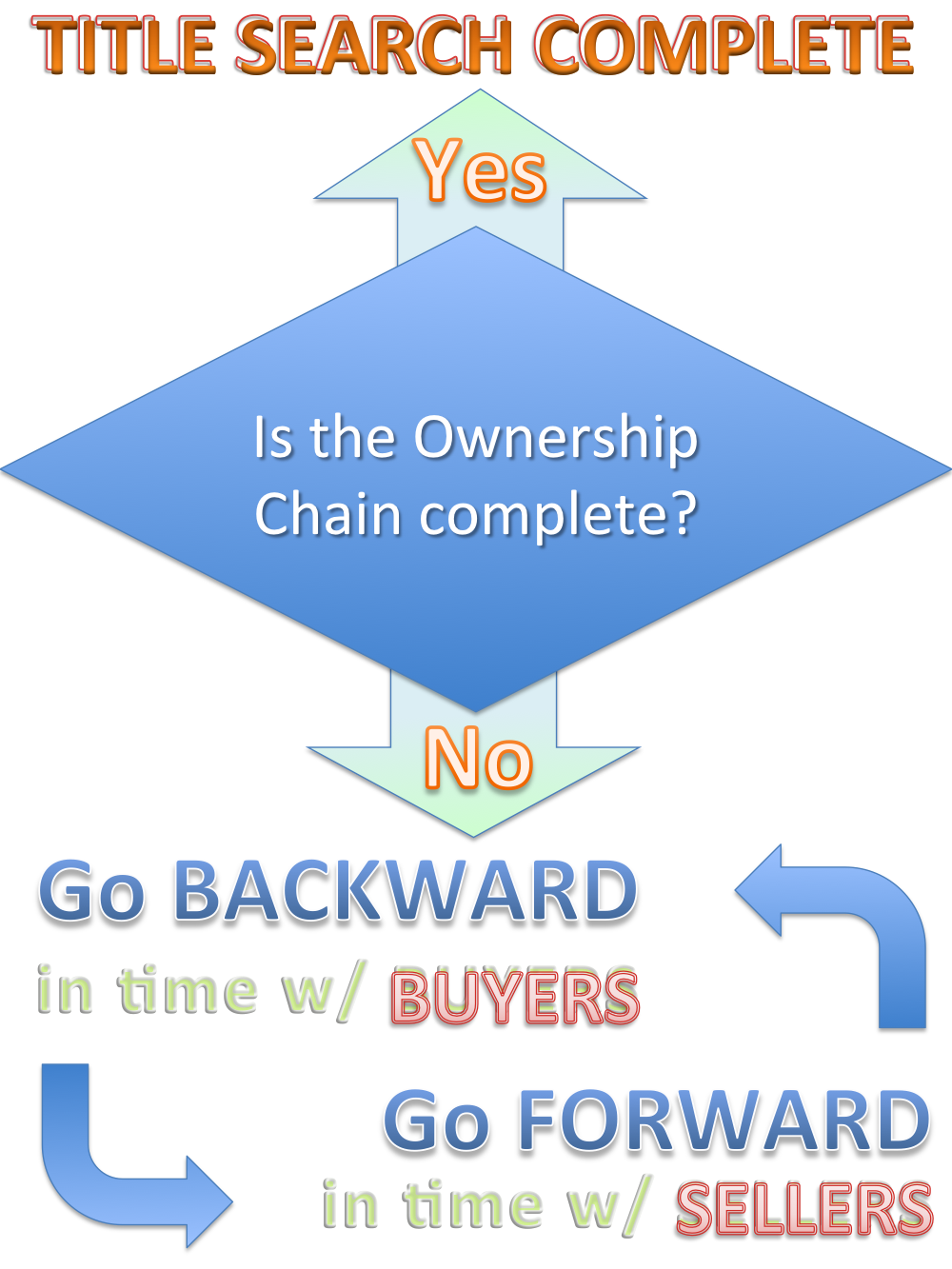
In the Recorder’s Office:
Bookshelves line the walls and aisles. Research tables may support computer terminals and microfiche viewers. There's a copy machine.
No food or drink. Quiet encouraged.
Two kinds of books are in the Recorder's Office: Index Books and Deed Books.
1.) INDEX BOOKS list the County's entire history of real estate transactions.
GRANTEE Indexes (buyer) travel backward in time.
GRANTOR Indexes (seller) travel forward in time.
2.) DEED BOOKS contain the Deeds for all the County's real estate transactions.
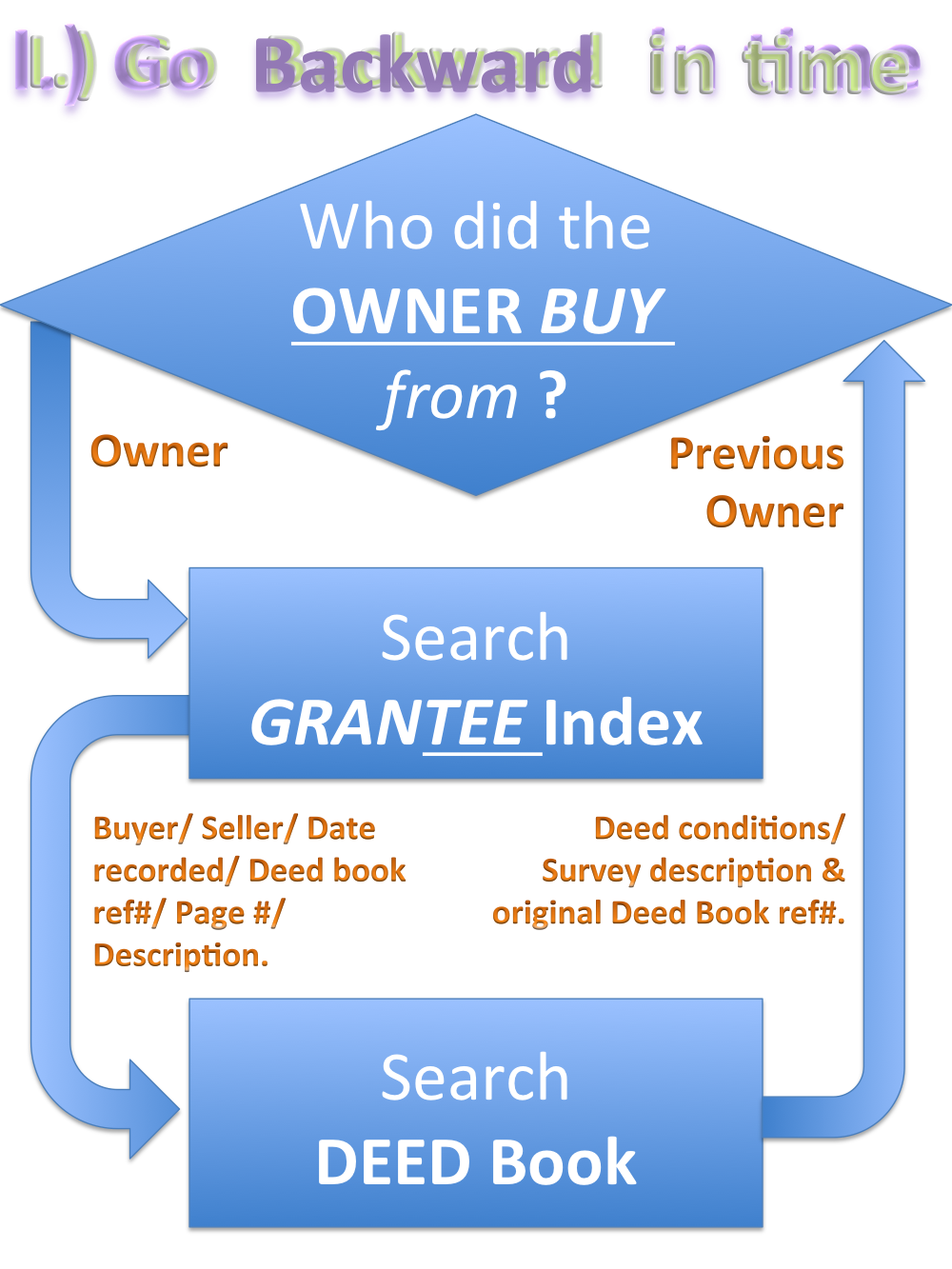
Begin with the GRANTEE Index. They line the shelves chronoloically.
Find the GRANTEE Index Book for the current owner.
GRANTEES (Buyers) are listed alphabetically. Find the page listing for the current owner's purchase transaction. The listing also includes the GRANTOR (Seller), and a reference to a Deed Book's page number. Write down the Grantee, Grantor and the Index Reference.
Locate the referenced Deed Book and page. The Deed's Buyer should match the Current Owner on the Current Property Record.
Who did the Seller buy from?
Search the GRANTEE Index again, but this time under the Seller's name. Repeat until...
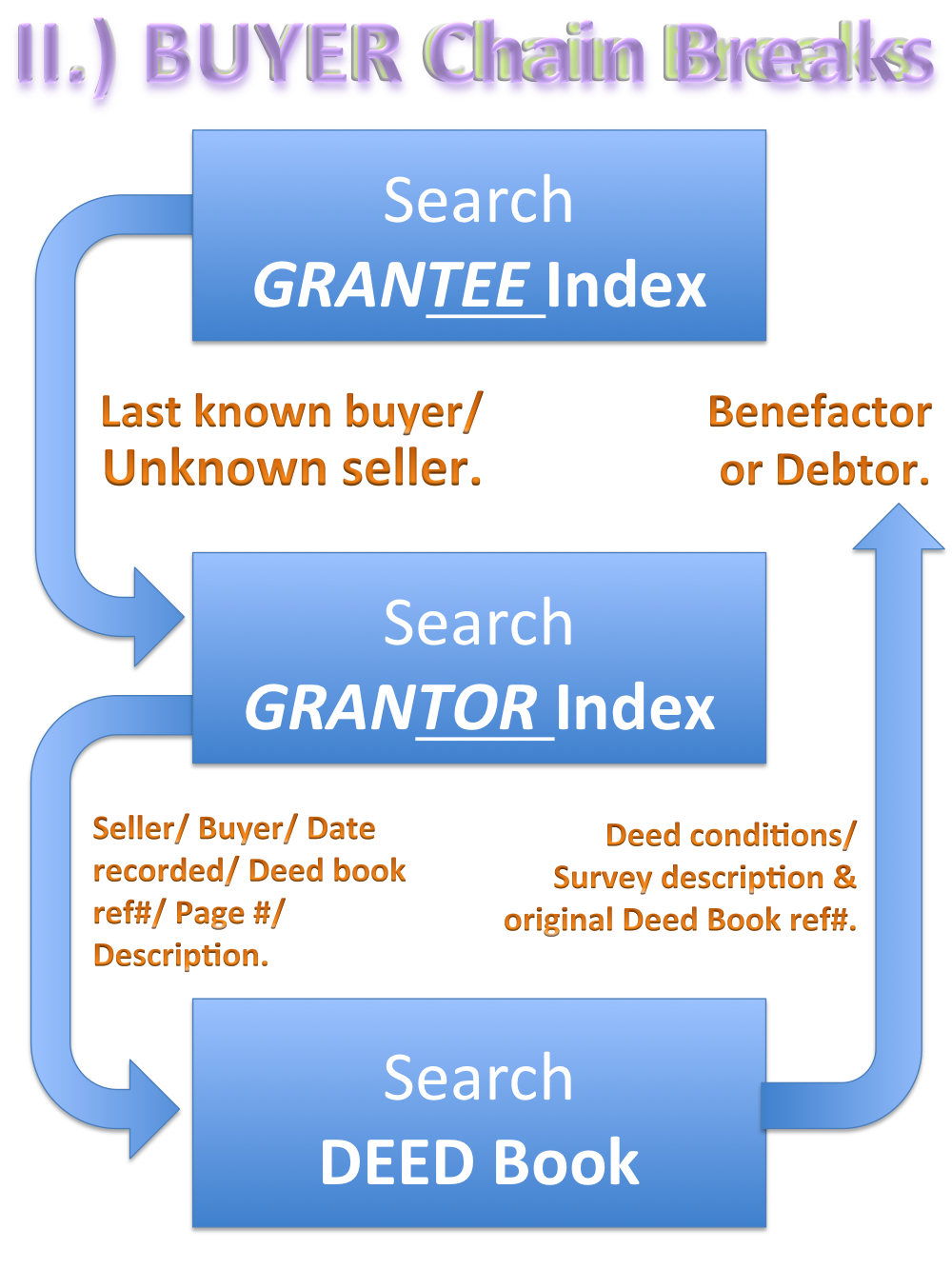
... The Chain of Buyers breaks.
Buyer Ownership Chains usually break from death or debt.
Now you need the GRANTOR (Seller) Index.
Look up the Buyer Chain's broken link, the earliest recorded buyer, in the GRANTOR Index.
In the case of death, and other situations, the GRANTOR's Deed goes to Beneficiaries and Creditors.
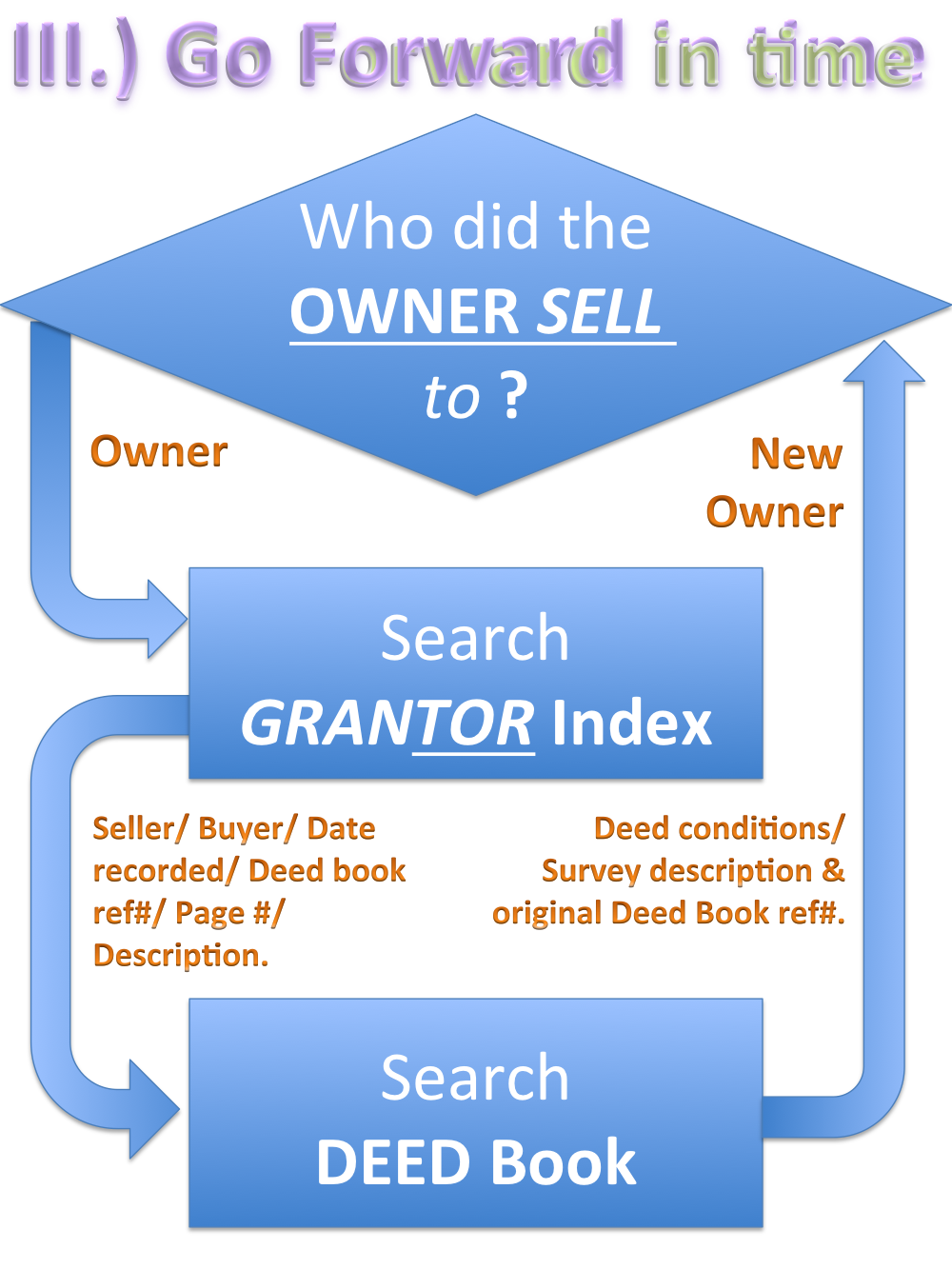
Make note of the GRANTOR Index's Deed Book Page Reference Code, Buyer and Seller.
Find the Seller's DEED.
The GRANTOR transferred the property to Beneficiaries (including Creditors).
Is the Beneficiary the last known buyer?
If not, who did the Beneficiary sell to?
Who acquired the property from the Beneficiary?
Look up the Beneficiary in the GRANTOR (Seller) Index. Who acquired the Beneficiary’s property?
Research forward across inheritance and creditors.
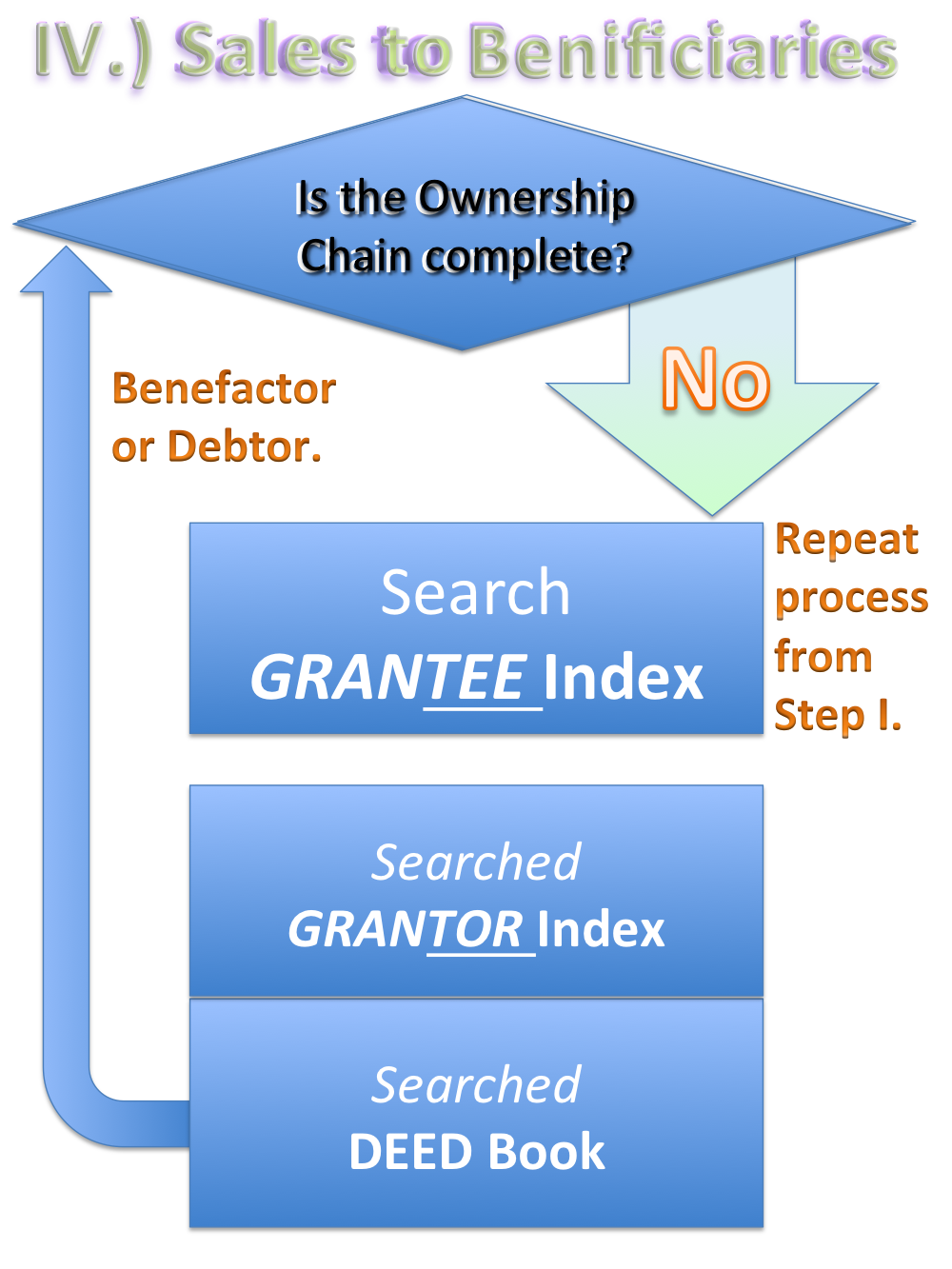
If the Seller Chain breaks, look up the last known seller in the GRANTEE (Buyer) INDEX.
An old property title search may have many iterations of alternately searching GRANTEE and GRANTOR Indexes.
These processes work for most properties.
Complex cases may require input from the Tax Assessor or other civic archives.










































































































































































































